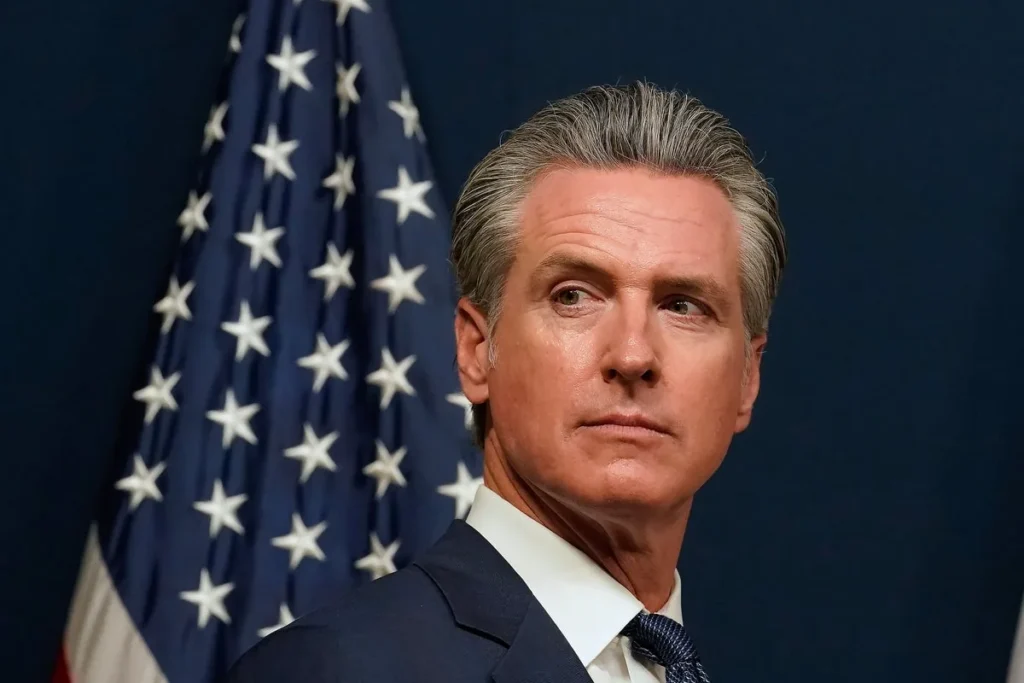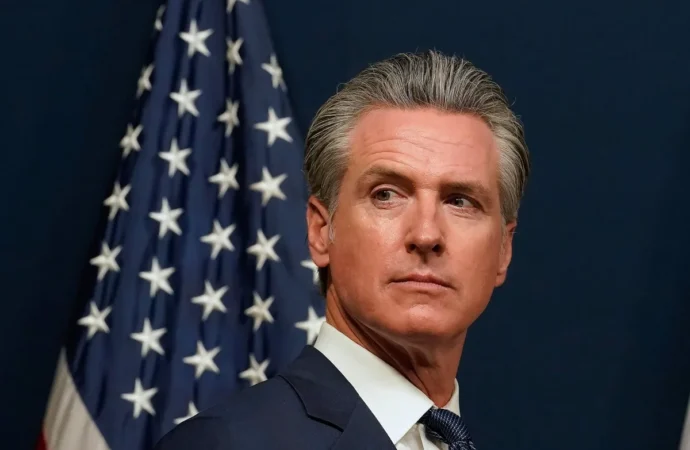On Saturday, the press office for California Governor Gavin Newsom published a message on X (formerly Twitter) about Homeland Security Secretary Kristi Noem that read:“Kristi Noem is going to have a bad day today. You’re welcome, America.” The post came just as Newsom was signing a bill (the “No Secret Police Act”) that, among other
On Saturday, the press office for California Governor Gavin Newsom published a message on X (formerly Twitter) about Homeland Security Secretary Kristi Noem that read:
“Kristi Noem is going to have a bad day today. You’re welcome, America.” The post came just as Newsom was signing a bill (the “No Secret Police Act”) that, among other provisions, prevents ICE officers in California from wearing masks or other face coverings, and strengthens protections for students and patients from Immigration & Customs Enforcement (ICE). Newsom has said the law is meant in part to counteract policies being advocated by Noem’s department.
Following the post, a number of Republican figures and Trump administration–aligned officials reacted strongly:
- Bill Essayli, U.S. Attorney for the Central District of California, said he viewed the post as a potential threat and forwarded it to the Secret Service for a full threat assessment, stating that there is “zero tolerance for direct or implicit threats against government officials.
- A spokesperson for the Department of Homeland Security, Tricia McLaughlin, criticized the post, calling it a threat and accusing Newsom’s team of hiding behind screens to make aggressive statements.
- Some of Newsom’s political opponents accused him of overstepping the norms of political speech.
On the other side, Newsom’s office has defended the message—though some responses appear to lean into irony or pushback, rather than apologies. There are discussions underway about whether this episode could trigger formal investigations into whether the post counts as a “threat” in any legal or security sense. Some argue it’s protected political speech; others worry about the precedent of aggressive rhetoric from officials

This incident sits at the intersection of politics, free speech, and government accountability. Here are several angles that seem especially important:
- Free Speech vs. Threatening Tone
Political discourse in the U.S. has long tolerated harsh, even confrontational rhetoric. What’s new is the growing tension over how far is too far when someone in power (or their office) appears to signal harm—whether implicitly or explicitly. The line between a metaphorical “bad day” and a threat can be blurry, especially when addressed to another high-level official. - Political Strategy
Newsom has been increasingly using combative social media tactics. Some of this messaging seems designed to rally his base, contrast his policies sharply with those of the Trump administration, and get attention. But these strategies carry risk: they invite scrutiny, legal challenge, and public backlash. - Security and Protocol
Once a post by a governor’s press office is taken seriously by law enforcement (as with the Secret Service involvement), it triggers institutional and procedural consequences. Authorities must assess: is this a protected political speech? Does it cross into “threatening” behavior under law? If yes, that could carry liability or other repercussions for the office. - Political Fallout
- Among conservatives and Noem allies, this is being framed as evidence that Democrats engage in hostile, possibly dangerous rhetoric.
- Among Newsom’s supporters, there is likely to be defense of free speech and a narrative that this is typical political sparring.
- Public opinion may judge based on how Newsom responds (does he double down, clarify, apologize?) and on the result of any official investigation.
- Precedent and Tone Setting
This event contributes to ongoing questions about decorum in politics. If such posts become normalized, it may lower the bar for what is acceptable, which could be constructive (engagement, clarity) or corrosive (escalation, threats, polarization).
Whether the Secret Service or other agencies will conclude there’s sufficient cause for any legal action or formal security response. How Newsom addresses the criticism. Will he clarify that no literal threat was intended? Will he retract or apologize? Or will he defend the rhetoric as political strategy? What Noem or her department’s response will be: legal, rhetorical, or both. How this plays in the media and among voters—does it cost Newsom support, energize his base, or create a broader backlash? Broader implications for how officials use social media and where the lines of acceptable discourse are drawn in an era of heightened political tension.

















Leave a Comment
Your email address will not be published. Required fields are marked with *